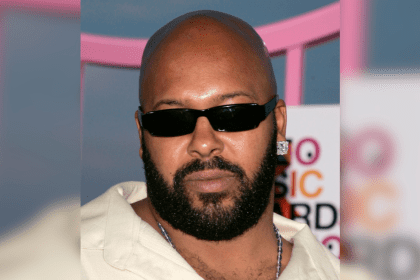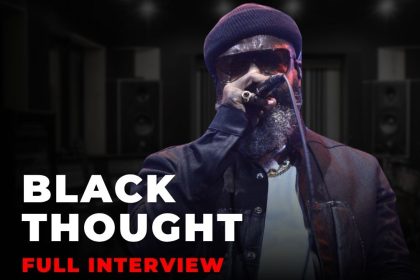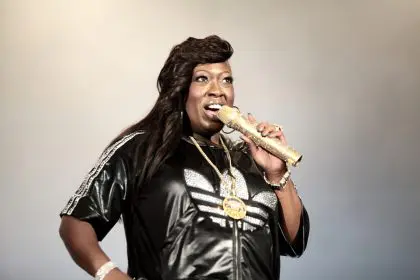The longstanding rivalry between Marion “Suge” Knight Jr. and Calvin “Snoop Dogg” Broadus Jr. has reignited with renewed intensity, centered primarily on the ownership and legacy of Death Row Records. Their public dispute has captured widespread attention as both figures trade accusations about the legendary label that shaped West Coast hip-hop.
The foundation years
Death Row Records emerged in 1991 through the partnership of Knight and music producer Andre “Dr. Dre” Young, quickly establishing itself as a dominant force in the music industry. The label launched numerous successful careers, most notably that of Snoop Dogg, whose 1993 debut album “Doggystyle” catapulted him to rap superstardom and strengthened Death Row’s position in hip-hop culture.
During these formative years, Death Row Records created a distinctive sound that defined an era in music history. The label’s roster of artists produced groundbreaking work that continues to influence musicians today, establishing a legacy that both Knight and Snoop claim to protect.
The success brought both financial rewards and growing tensions that would eventually contribute to the complicated relationship between the label’s co-founder and one of its most successful artists.
The financial downfall
By 2006, Death Row Records faced significant financial difficulties that culminated in a Chapter 11 bankruptcy filing. This marked a turning point for the once-mighty label, as its assets and intellectual property entered a period of uncertainty. The bankruptcy process resulted in ownership changes as the label’s catalog and trademarks were sold off.
Knight’s own legal troubles compounded during this period, eventually resulting in his imprisonment. While Death Row’s original incarnation dissolved, its cultural significance remained intact, preserving its value for potential future investors interested in acquiring its name and catalog.
The label’s financial collapse represented not just a business failure but the end of an influential chapter in hip-hop history, creating a void that would remain until unexpected developments more than a decade later.
The ownership acquisition
In a surprising turn of events, Snoop Dogg purchased the Death Row trademarks in 2022, effectively taking control of the label where his career began. This acquisition represented a significant moment in the ongoing story of Death Row Records, breathing new life into a brand that many considered part of hip-hop history.
Upon gaining ownership, Snoop expressed intentions to revitalize the label while honoring its legacy. His acquisition transferred control of Death Row’s name and intellectual property, giving him authority over how the label’s history would be represented and its future directed.
The purchase has become a central point of contention between Knight and Snoop, with the imprisoned former executive expressing clear resentment over Snoop’s ownership claim.
The escalating conflict
Tensions between the two figures escalated dramatically when Knight accused Snoop of attempting to secure the release of Duane “Keefe D” Davis, the alleged killer of Tupac Shakur. This serious allegation connected their ownership dispute to one of hip-hop’s most tragic and controversial events.
Snoop responded to these accusations through social media, directly addressing Knight’s claims and suggesting they stemmed from anger over the Death Row acquisition. This public exchange highlighted the personal nature of their conflict, moving beyond business disagreements into accusations about loyalty and integrity.
Knight has openly challenged Snoop’s ownership claims, demanding proof of payment for the acquisition and questioning the legitimacy of the purchase. He has further criticized Snoop’s stewardship of the Death Row brand, claiming that Snoop has damaged the label’s name and legacy since taking control.
The historical disputes
The conflict extends to disagreements about their shared history, particularly regarding their relationships with Tupac Shakur. Knight has disputed Snoop’s accounts of visiting Tupac in the hospital after the shooting in 1996, challenging Snoop’s version of events during this pivotal moment in hip-hop history.
These contradictory narratives about the past highlight the deeper struggle over who will control Death Row’s legacy. Each man presents himself as the true guardian of the label’s history, with fundamentally different perspectives on what happened and what should happen next.
The public nature of their feud has generated significant reaction across social media platforms. Supporters of both men have weighed in, creating divided opinions about who is right and who is rewriting history for personal gain.
As Snoop continues in his role as Death Row’s current owner, Knight’s ongoing criticisms from prison underscore the unresolved tensions of their shared past. Their conflict represents more than a personal disagreement; it embodies competing visions for preserving the legacy of one of hip-hop’s most influential record labels.
The question remains whether Death Row Records can move forward under Snoop’s direction while honoring its complicated history, or whether the ongoing dispute between these two figures will continue to overshadow both its past and future. For fans and observers of hip-hop culture, this evolving situation provides a fascinating glimpse into the business, personal, and cultural dimensions of music industry conflicts.

















